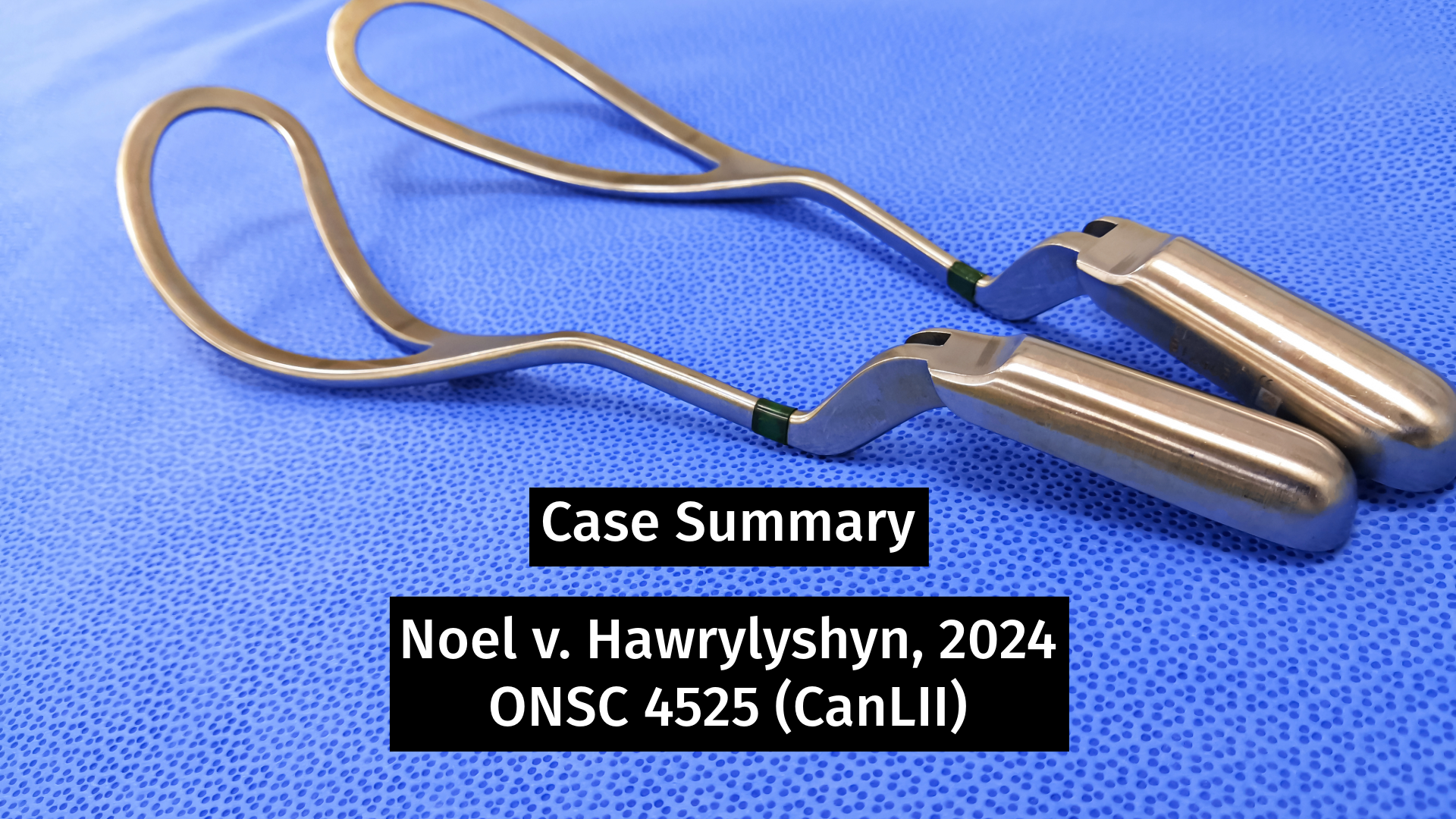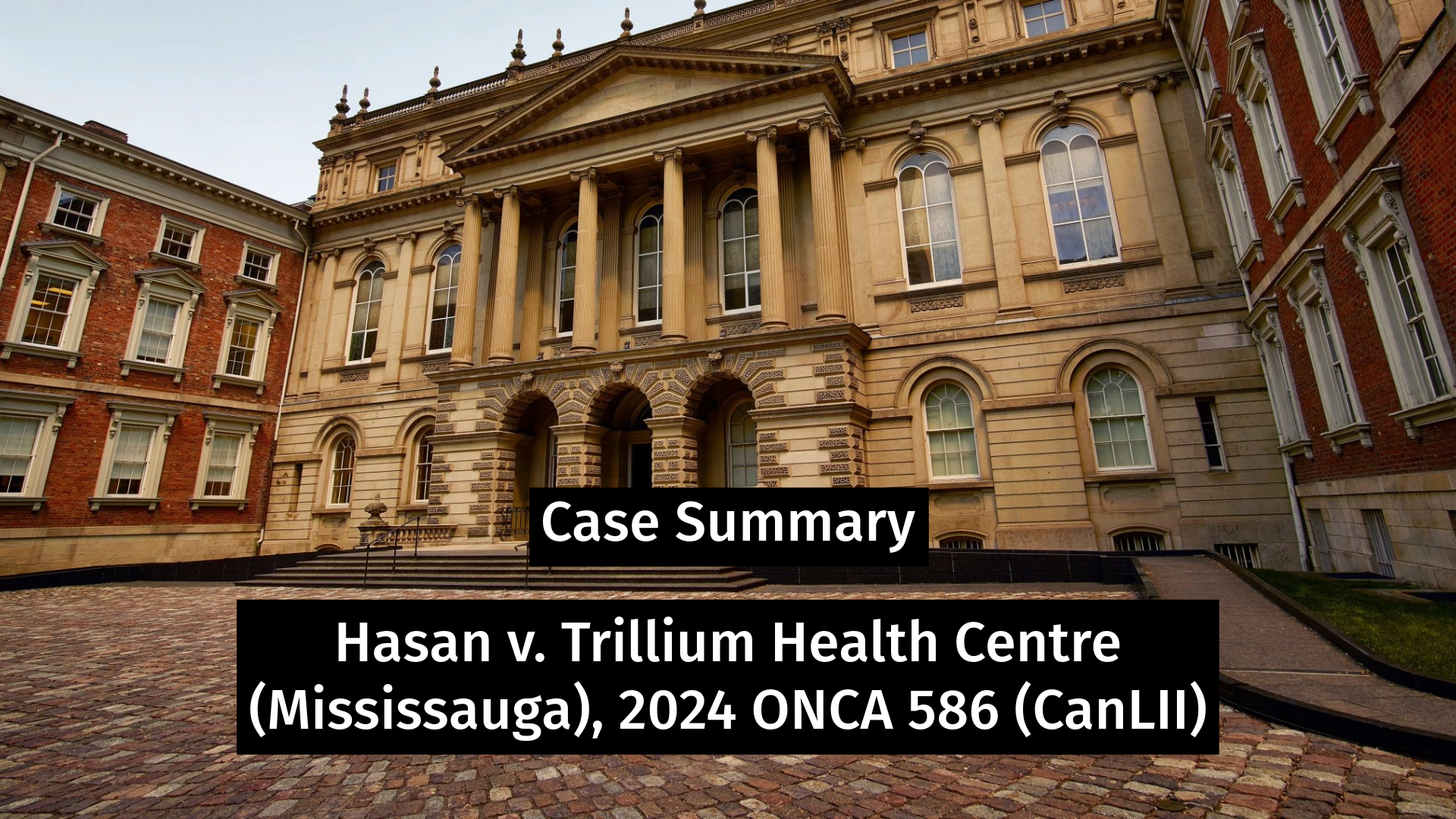This was a judicial review application to the Divisional Court of the Ontario Superior Court of Justice of a decision of the Health Professions Appeal and Review Board (“HPARB”), dated January 16, 2020, confirming the decision of the Inquiries, Complaints and Reports Committee (“ICRC”) of the College of Physicians and Surgeons (“CPSO”) that dismissed a complaint against a doctor for having accessed the patient’s medical records for the purposes of defending himself in a medical malpractice lawsuit after he was no longer the patient’s treating physician.
BACKGROUND
Dr. Amit Shah provided treatment to Robert Martin (who died after the commencement of this application) on one occasion over a four-hour period in the emergency room of St. Thomas Elgin General Hospital for a left-leg tibial fracture. Subsequently, Mr. Martin commenced a medical malpractice action against Dr. Shah for failing to identify compartment syndrome leaving Mr. Martin’s leg severely deformed and entirely disabled as a result.
While pursuing his action, Mr. Martin discovered that Dr. Shah accessed his medical records on several occasions over a four-year period, despite the fact that he was no longer involved in Mr. Martin’s care and despite the fact that Dr. Shah had transferred Mr. Martin to another hospital.
Mr. Martin complained to the CPSO about Dr. Shah’s conduct in accessing his medical records. The ICRC investigated the complaint and decided to take no further action against Dr. Shah. Key to this decision was the ICRC’s finding that Dr. Shah had accessed Mr. Martin’s medical records for the purpose of instructing counsel and defending himself in the medical malpractice proceeding and that such access was permitted under s. 37(1)(h) of the Personal Health Information and Protection Act, 2004. S.O. 2004, c. 3 Sched. A. (“PHIPA”). On review, the HPARB found that the ICRC’s decision was reasonable. It also found that the ICRC’s investigation was adequate.
The Applicant challenged the HPARB’s conclusion regarding the adequacy of the ICRC’s investigation and also asserted that HPARB erred in upholding the ICRC’s decision that s. 37(1)(h) of PHIPA authorized Dr. Shah to access the records in question.
The ICRC Decision
The ICRC found no issue with Dr. Shah accessing Mr. Martin’s records for the purpose of defending himself in the civil lawsuit for medical malpractice and cited s. 37(1)(h) of PHIPA, which reads as follows:
- A health information custodian may use personal health information about an individual…
- (h) for the purpose of a proceeding or a contemplated proceeding in which the custodian or the agent or former agent of the custodian is, or is expected to be, a party or witness, if the information relates to or is a matter in issue in the proceeding or contemplated proceeding.
The ICRC found that s. 37(1)(h) “clearly sets out an exemption around the privacy considerations related to a patient’s personal health information, for the purposes of litigation.” As it was satisfied that Dr. Shah only reviewed Mr. Martin’s records “for the purposes of litigation,” it declined to take any further action against him.
The HPARB Decision
The HPARB was satisfied that the ICRC’s investigation was adequate and its decision reasonable and upheld the initial decision at the CPSO.
JUDICIAL REVIEW DECISION
The Divisional Court allowed the application for judicial review and remitted the matter back to the HPARB for reconsideration.
The Divisional Court noted that the fundamental importance of guarding the confidentiality of personal health information and of a patient’s medical records in particular, warranted a careful analysis of the relevant provisions of PHIPA and of the physician’s actions in the circumstances.
It was undisputed that Dr. Shah was unilaterally and without the permission of the patient or the health care information custodian, the London Health Sciences Centre (“LHSC“), accessing his former patient’s hospital records, some four years after the one occasion in which he rendered medical treatment and long after he ceased to be part of the patient’s circle of care.
This occurred at a time when these hospital records were in an electronic data base under the custody and control of a public hospital with policies and oversight responsibilities for the use and disclosure of these records. Moreover, this happened in circumstances where Dr. Shah had already been provided by his counsel with copies of the relevant parts of the hospital record, obtained pursuant to the Rules of Civil Procedure which were applicable in the lawsuit.
The Divisional Court found that the ICRC mischaracterized Dr. Shah as a health information custodian under PHIPA, rather than an agent of the custodian. In so doing, it failed to consider whether Dr. Shah complied with the CPSO Policy requiring physicians, who are agents, to contact the health information custodian (the LHSC) to determine whether the custodian would agree to the release of the former patient’s personal health information under its custody and control.
As a result, the ICRC did not consider if the physician had complied with his obligations under s. 17(1) of PHIPA and did not obtain or review online or otherwise consider the relevant confidentiality policies of the custodian, the LHSC. In short, by focusing exclusively on s. 37(1)(h) of PHIPA, the ICRC did not adequately consider the lawfulness of Dr. Shah’s access to the hospital’s electronic health records system in the circumstances of this case.
Decision Date: May 18, 2023
Jurisdiction: Ontario Superior Court of Justice – Divisional Court
Citation: Martin (Estate) v Health Professions Appeal and Review Board, 2023 ONSC 2993 (CanLII)



